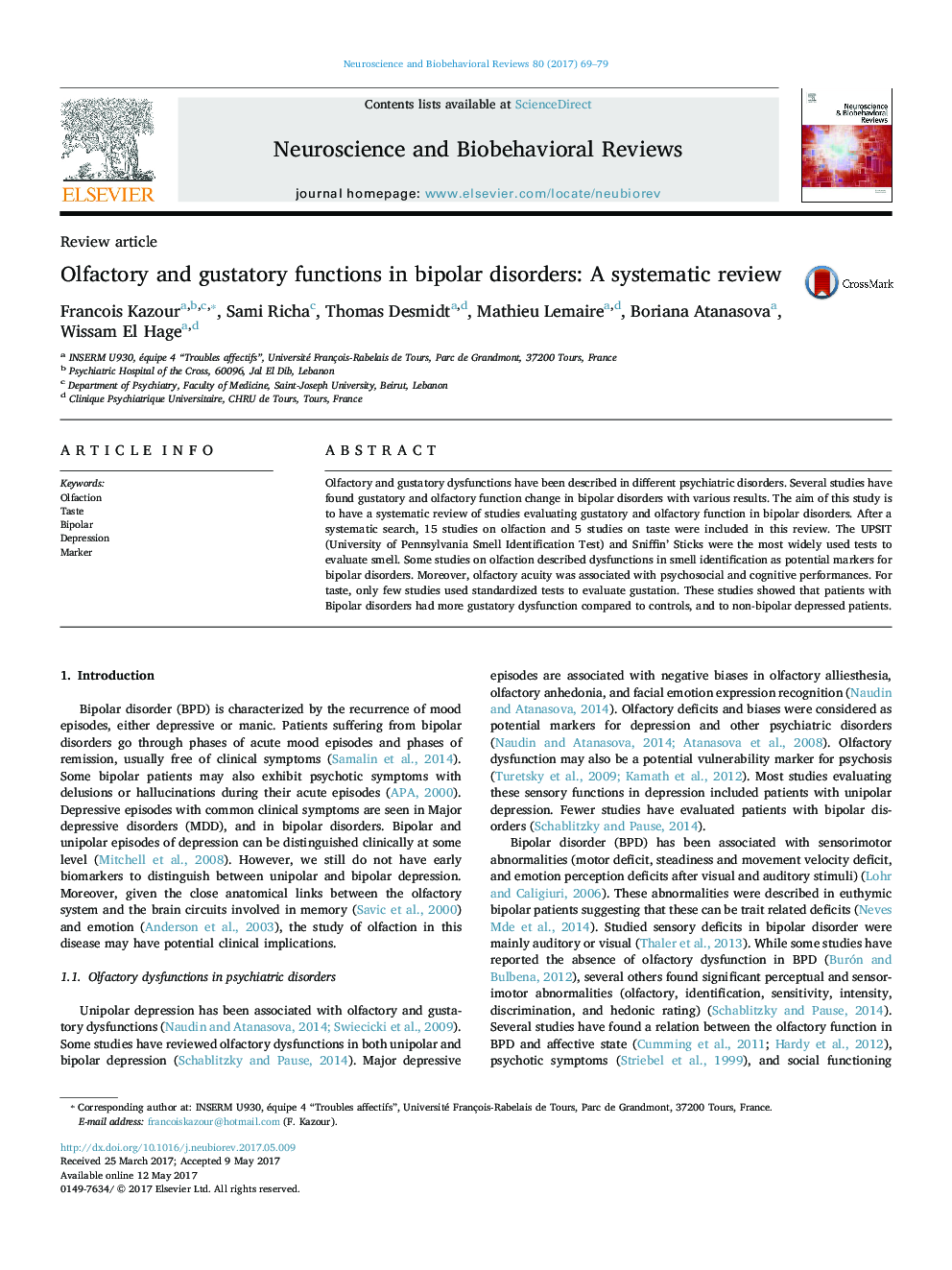| Article ID | Journal | Published Year | Pages | File Type |
|---|---|---|---|---|
| 5043434 | Neuroscience & Biobehavioral Reviews | 2017 | 11 Pages |
â¢Patients with bipolar disorder present with several olfactory and gustatory dysfunctions.â¢Dysfunction in olfactory identification may be potential marker for bipolar disorder.â¢Olfactory acuity is associated with psychosocial and cognitive performances in bipolar disorder.â¢Bipolar patients have more gustatory dysfunction than non-bipolar depressed patients and controls.
Olfactory and gustatory dysfunctions have been described in different psychiatric disorders. Several studies have found gustatory and olfactory function change in bipolar disorders with various results. The aim of this study is to have a systematic review of studies evaluating gustatory and olfactory function in bipolar disorders. After a systematic search, 15 studies on olfaction and 5 studies on taste were included in this review. The UPSIT (University of Pennsylvania Smell Identification Test) and Sniffin' Sticks were the most widely used tests to evaluate smell. Some studies on olfaction described dysfunctions in smell identification as potential markers for bipolar disorders. Moreover, olfactory acuity was associated with psychosocial and cognitive performances. For taste, only few studies used standardized tests to evaluate gustation. These studies showed that patients with Bipolar disorders had more gustatory dysfunction compared to controls, and to non-bipolar depressed patients.
